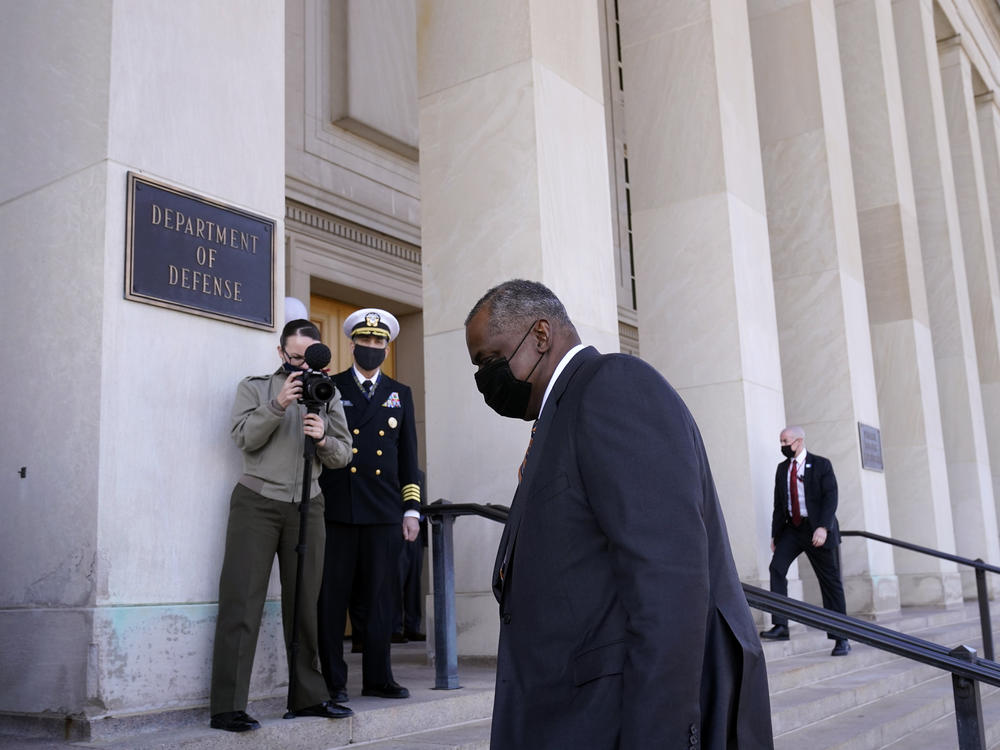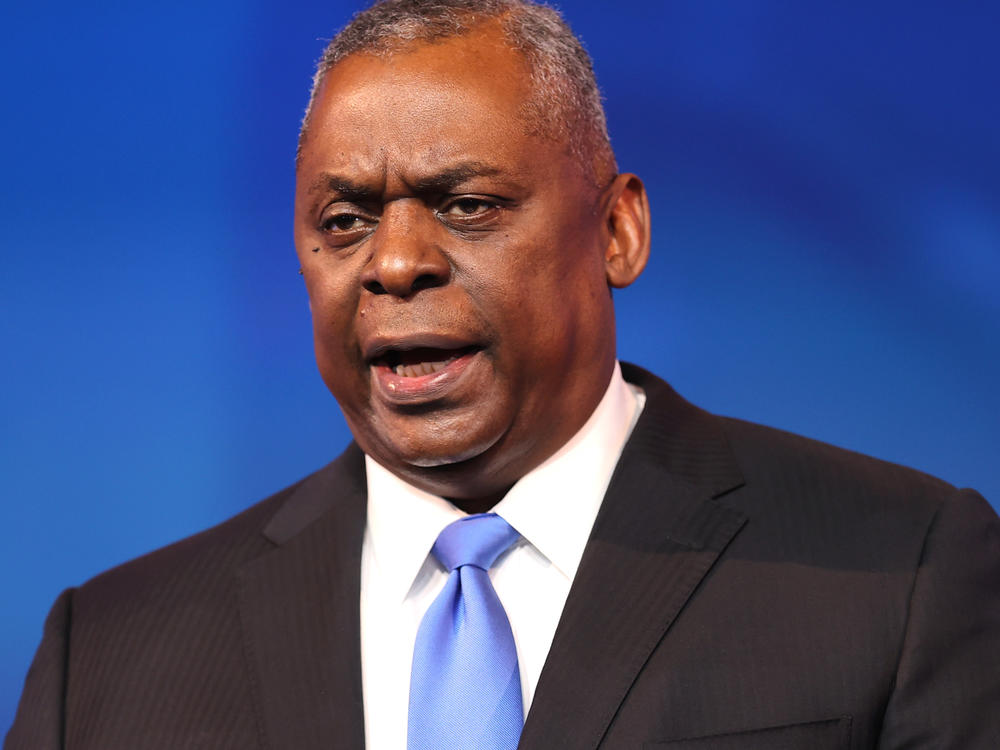Section Branding
Header Content
Lloyd Austin Confirmed As Defense Secretary, Becomes 1st Black Pentagon Chief
Primary Content
Updated 2:45 p.m. ET
Lloyd Austin, a retired four-star Army general, has been confirmed by the Senate, making him the first Black defense secretary in U.S. history.
The Senate approved President Biden's nomination for Pentagon chief in a near-unanimous 93-2 vote Friday.
"It's an honor and a privilege to serve as our country's 28th Secretary of Defense, and I'm especially proud to be the first African American to hold the position," Austin tweeted Friday.
"Let's get to work," he added.
Austin's nomination was approved despite concerns raised on both sides of the aisle that he hadn't been out of uniform for the legally mandated seven-year period.
The National Security Act of 1947 created the rule to ensure civilian control over the military is maintained, but it also permits a waiver if lawmakers in both the House and the Senate approve.
Those votes also passed in bipartisan fashion, clearing the way for Austin's confirmation.
"The safety and security of our democracy demands competent civilian control of our armed forces. The subordination of military power to the civil," Austin, 67, said during his confirmation hearing Tuesday before the Senate Armed Services Committee.
He also attempted to allay fears of some committee members who raised concerns of setting dangerous precedent by allowing two waivers for defense secretaries in four years. He promised to surround himself with "experienced, capable civilian leaders" and to hire a chief of staff who "will not be a military person."
Austin becomes just the third Pentagon chief to serve after receiving a waiver. He joins George Marshall, a retired general of the Army nominated in 1950 by President Harry Truman, and retired Marine Gen. Jim Mattis, former President Donald Trump's first defense secretary in 2017.
Senate Minority Leader Mitch McConnell explained that he was voting in favor of Austin because presidents should be allowed the latitude to fill their administration with "qualified, mainstream people."
He also lamented that Congress once again had to pass a waiver in order for Austin to serve in the post.
"The law that we keep waiving actually exists for a good reason," McConnell said.
"Civilian control of the military is a fundamental principle of our republic. We emphatically do not want high-ranking military service to become a tacit prerequisite for civilian leadership over at the Department of Defense," he added.
Majority Leader Chuck Schumer chose to focus instead on the history that was made on the Senate floor.
"Mr. Austin will be the first African American ever to helm the Defense Department in its history," Schumer said. "A powerful symbol of the diversity and history of America's armed forces."
The only two no votes for Austin's confirmation came from Sens. Josh Hawley, R-Mo., and Mike Lee, R-Utah.
Austin served more than 40 years in the Army, and headed U.S. Central Command, the Pentagon's key post leading military operations in Afghanistan, Iraq, Syria and Yemen. He served as commander of the theater from 2013 to 2016, making him the first Black general to hold that post.
Sen. Dan Sullivan, R-Alaska, who introduced Austin at his confirmation hearing earlier this week, congratulated him on his accomplishment, adding that Austin was "a great American."
The senator said he and Austin served together in the Middle East in 2005 and 2006. He spoke of their "uneven power relationship" with Sullivan being a major in the Marine Corps., while Austin at the time was a two-star Army general.
"I was just one of hundreds of field-grade infantry officers, recalled to active duty, deployed in the region during a challenging time for our nation," Sullivan said Tuesday. "But when I asked for his time, Mr. Austin gave it. When I had a problem, he listened. And when I asked for help on an important mission, he provided it."
With much of Austin's expertise focused on nations in which the U.S. is at war, some lawmakers raised questions about his readiness to tackle other global threats, in particular from China and Iran.
"I think China is ... our most significant challenge going forward," Austin said Tuesday, while referring to Iran as a "destabilizing force" in the Middle East.
Another challenge facing the new defense secretary are concerns of extremism within the ranks of the military. Those fears have been heightened since the deadly Jan. 6 insurrection at the U.S. Capitol that was set into motion at the urging of Trump.
An NPR investigation found that nearly 20% of the people charged in the Capitol complex breach as of Thursday have served or are currently serving in the military.
Concerns about extremist elements within the ranks of the military are not new, of course.
During his confirmation hearing, Austin called it a "critical" issue and said that better screening is needed for military recruits. He also shared an anecdote with lawmakers about when he was working with the 82nd Airborne Division in North Carolina years ago.
"We woke up one day and discovered that we had extremist elements in our ranks and they did bad things," Austin said without providing details. "The signs for that activity were there all along. We just didn't know what to look for or what to pay attention to."
"But we learned from that," he said.
Austin graduated from the U.S. Military Academy at West Point in 1975 with a commission in the Infantry, according to his biography from the American Academy of Diplomacy.
He was born in Mobile, Ala., but grew up in Thomasville, Ga. That's the same Georgia town where Army Lt. Henry O. Flipper was born.
Flipper was born a slave in 1856 and went on to become the first Black graduate of West Point and the first African American commissioned officer in the Army.
Copyright 2021 NPR. To see more, visit https://www.npr.org.


